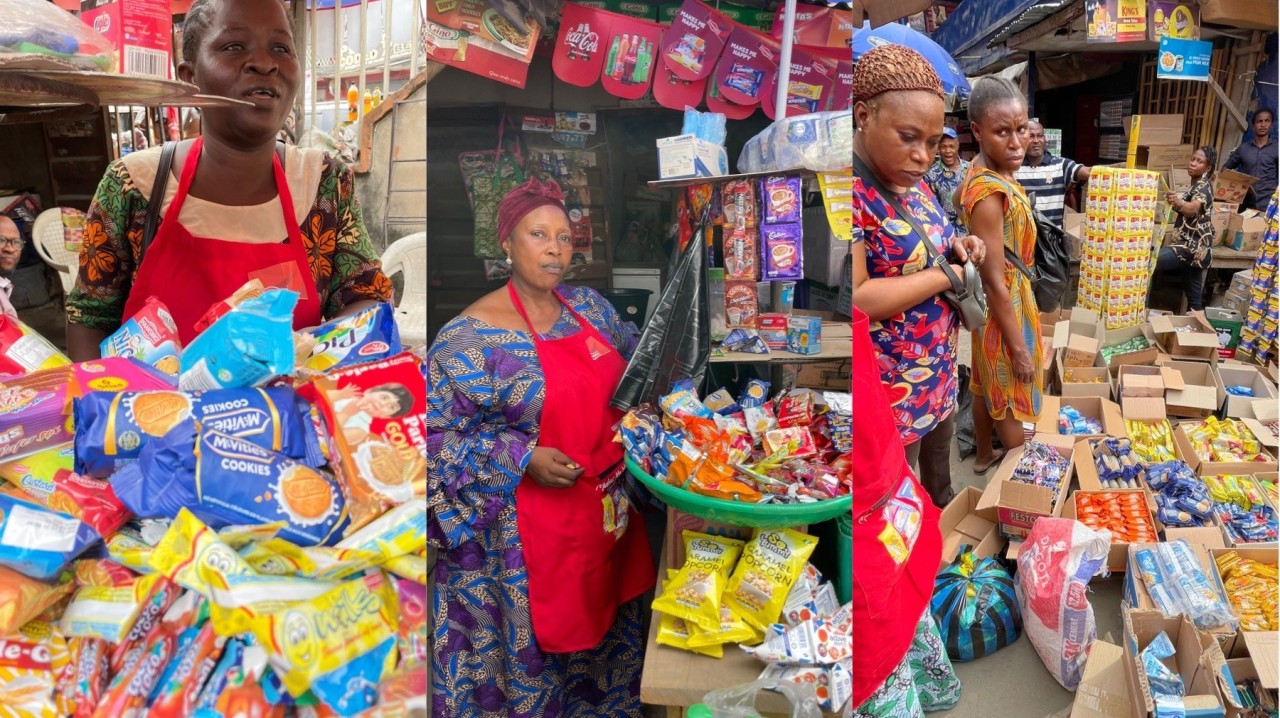Nigeria News
Economic Hardship And Its Impact On Small Business Owners In Nigeria

The lingering economic hardship in Nigeria has remained a source of concern to many citizens such as business owners and entrepreneurs.
With rising inflation and the cost of living in the country, many business owners, especially small-scale and middle-scale business owners, have found it difficult to make ends meet.
The economic hardship, high cost of living, and rising prices of goods and food in Nigeria have reached alarming levels, while foreign exchange is becoming alarming by the day.
The prices of food and commodities have skyrocketed in the markets, eroding the purchasing power of the average Nigerian, not to mention businesspersons.
Being an entrepreneur in Nigeria is quite challenging because of the high interest rates from financial institutions and the lack of basic and social infrastructure, among other things.
According to experts, the problems facing Nigerian small business managers include a lack of finance for starting and developing businesses, poor infrastructure, inappropriate legislation, competition, lack of awareness creation, lack of managerial skills, corruption and inflation.
According to the National Bureau of Statistics (NBS), under the Bola Tinubu administration, Nigeria’s inflation rate rose to 31.70 percent in February from 29.90 percent recorded in January 2024.
In its latest CPI and inflation report released last week Friday, the bureau stated that this figure indicates an increase of 1.80 per cent.
This indicates that in February 2024, the rate of increase in the average price level was more than the rate of increase in the average price level in January 2024.
The NBS added that, on an annual basis, February 2024’s inflation rate was 9.79 per cent higher than the 21.91 per cent recorded in February 2023. The latest inflationary surge is despite the Central Bank of Nigeria’s (CBN) tightened monetary policy.
At the last Monetary Policy Committee (MPC) meeting, the apex bank increased the benchmark interest rate by 400 basis points to a record 22.75 per cent.
Despite the increases in inflation, interest rates, and other challenges, small-scale business owners are still emerging, as people are daily finding solutions to the various issues confronting them.
In an exclusive interview with Naija News, Ada Obidudo, a baker and confectionery expert based in Lagos, said the country’s current economic situation is getting worse by the day, and its currency is depreciating.
She stated that, as a small business owner, the country’s economic situation is really affecting her business, and governments at all levels are not doing anything to help small business owners.
She said: “The economic situation in the country is getting worse by the day; let’s start with the money; our currency is depreciating. Secondly, our leaders are not helping matters at all, it’s like, they are just so relaxed with what is happening and it’s crazy
“The dollar issue is really affecting my business negatively. The price of goods is skyrocketing every minute. The price you buy today is not the price you buy tomorrow, or should I say the price you buy this minute will not be the same the next minute.
“For instance, as of last Saturday, a bag of sugar was N95,000, a bag of flour was N62,000, a crate of eggs was ₦4,000, depending on the size, and so on. So it is really affecting my business because it changes the price of my cakes and pastries, and it is also not making me have customers as I should.
“If the government can work together to solve the dollar issue and make the naira more valuable, it will help small business owners like me and everyone.”
Speaking on the hike in the prices of baking ingredients, Obidudo said, “A bag of sugar, as of last week Saturday, was N95,000, while a bag of flour was N62,000.
“Depending on the size, a crate of eggs cost ₦4,000, while baking powder cost ₦2,000. One kg of gas costs 1300. I can go on and on.
I don’t know the current prices now; that is, they must have increased by now.”
Also, speaking with our correspondent, Linda Onwuazombe, a building material trader based in Abeokuta, said the current economic situation is quite bad, as inflation in all sectors seems to keep rising without tangible signs of a government solution.
She stated that the country’s economic hardships are creating panic among citizens and, if not curtailed on time, could lead to instability and chaos.
Onwuazombe said as a business owner, the foreign exchange policy of the Tinubu government is really affecting her business because all her goods are imported.
She said: “My products are imported, and I use the dollar as a major means of payment for goods. The rising dollar exchange rates have directly impacted the cost price of my products, leading to huge sales drops and patronage. My customers’ purchasing power has greatly dropped as they tend to look for cheaper alternatives to my product.”
On how the government can help small business owners, she said: “The various government bodies like the Trade Union Congress and the Nigeria Labour Congress (NLC) are really in a position to meet with the government’s economic team to discuss ways to protect traders through economic policies that will regulate pricing and, in the long term, work towards finding a lasting solution to the Exchange rates.”
She added: “The prices of the items are very expensive now due to the current exchange rate. The prices of roofing sheets have gone up. For example, the price of the Classic Wine roofing sheet jumped from ₦3,000 to ₦7,300, while Bond Wine moved from ₦3,100 to ₦6,300, and Shingle Black’s price moved from ₦3,300 to ₦7,400. The price of Shingle Wine with Black Patch increased from ₦3,350 to ₦6,450, while Shingle Wine with Red Patch jumped from N3100 to N6450
“The price of Wine Shingle moved from N3300 to N6450, Milano Wine and Black increased from N3450 to 6500, and Roman Blue’s price hiked from N2950 to N6500. The price of a Flat Sheet (1.5 meters) moved from N3000 to N5500, while the price of a Sealant Kit moved from ₦1,500 to N4000, and the price of nails jumped from ₦4,550 to ₦8,000.
“The price for PVC gum (250g) moved from ₦3,900 to N8000. The price for a Downpipe jumped from 1800 to ₦4,400, while the price of the Gutter Connector increased from N800 to 2000. The price of the Pipe Connector moved from N800 to N2000, while the price of a Stop-end connecter moved from N800 to N2000. The price of an Outlet/Funnel jumped from ₦1,200 to N2000. For a hanger, the price moved from N100 to N400, while the price of a clip jumped from N100 to 400.”












